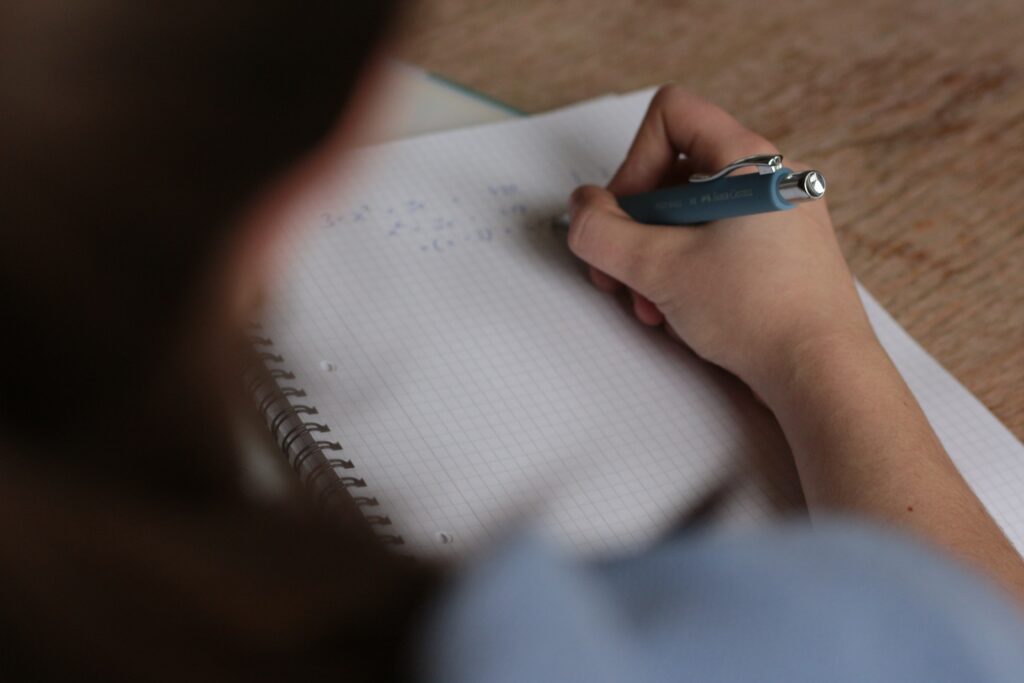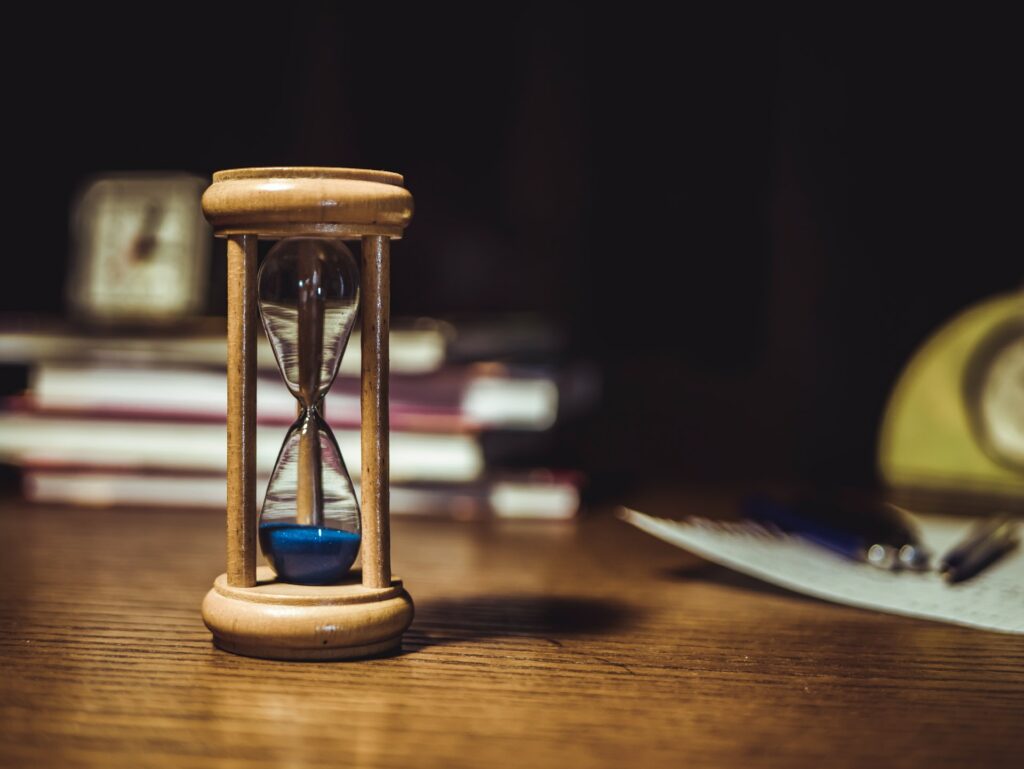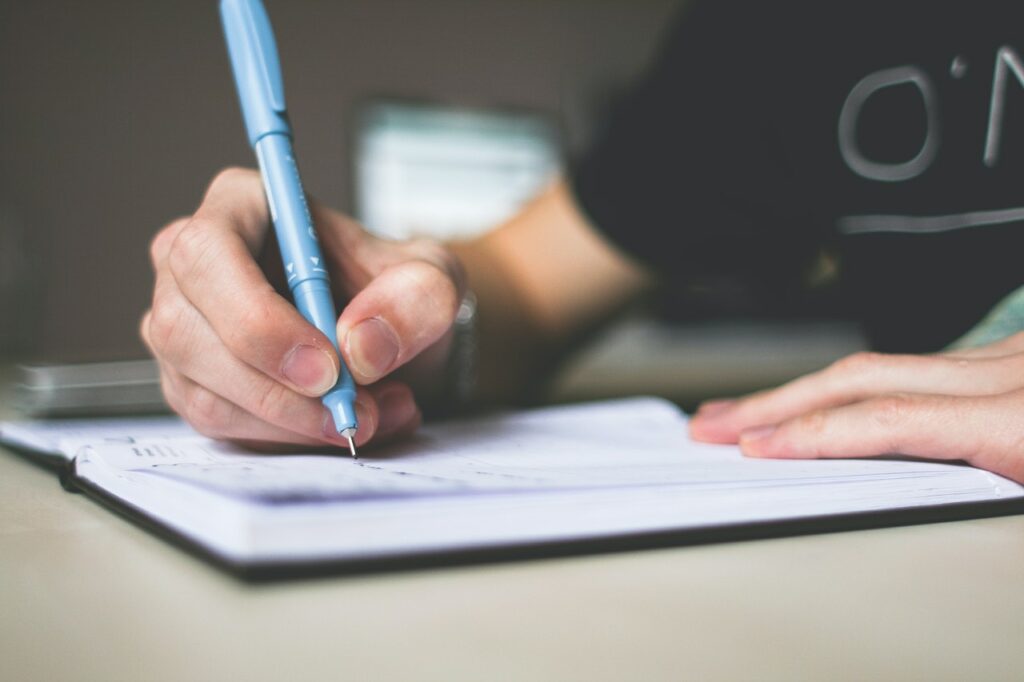“Exams are fun,” said no student ever. In fact, when exam times roll around, students know they face hours of study, stress, lack of sleep, energy drinks, fast food and snack machine junk, and general physical and mental self-abuse. In this condition, it is likely that final performance and scores on exams will not be as good as they could be.
Break the Cycle
It doesn’t have to be like this. Even though they do not like exams, students can make sure they get through without self-abuse and poor performance. The key is to adopt strategies and study tips on how to pass any exam. Let’s unpack some of these so that you can undo years of bad study habits and make study hours really count.
Before You Begin to Study
- Make sure you find out what type of exam you will be facing. In most cases, instructors will tell you. If not, ask. There is a big difference between studying for a multiple-choice test or one that will be all essay. The point is you will be studying differently for different types of tests. You have known that this is important for years, so don’t skip this step – and you’re halfway to unlocking the secret to how to pass any test.
- For multiple-choice tests, you will need to focus on details that are contained in your text and your course notes. As you review your notes, you should have a good idea of those facts that your instructor considers essential. And your text should have bolded sections. Read through the key details and take notes. Compare them with your course notes, and get together a master list of the key points. Just writing them down will help your brain with recall.
- For essay tests, make sure that you go through your course notes and write down those points your instructor has emphasized in class. These will most likely be the subject of essay questions. Make a list of these and add important points and details under each one. Again, your brain will process this information, and recall will come easier.
- True-False sections: Again, these will be detail-oriented exam questions. Use the same preparation as you do for objective-type questions.
- Fill in the Blank: Again, these types of questions may include both details and more general concepts. If you have comprised your lists of key material, make sure you have the important concepts and factual information you need.
The Studying Process to Pass Exams
Students can tell a lot about how it feels to study the entire night before the exam. Yet, you have forewarning of an exam, and you are well aware of the need to put in hours to study for it. In college, you will get a syllabus with the dates of each exam. In high school, the teacher will announce exams at least a few weeks before the event. With this amount of time, you can develop a plan for studying that will not entail pulling an all-nighter and last-minute cramming. Write your plan down, and stick to that schedule until you pass exams. Remember to check your scheduled plan daily. If a revision is needed due to other events, be certain that you have re-scheduled to cover everything.
Take the following tips to heart – you will work smarter, not harder for exams.
- You have your lists of material. Divide up that material into smaller chunks. Set a specific number of hours each day to review a selected chunk. Remember, there will be new content added up to the exam date, so be certain to add it as it is given. This will require revision of your initial content notes.
- Some instructors will provide a study guide. If so, compare that guide with your lists. If anything has been left out, add it now. You must try to stay current.
- Every student has his own way of learning. If you have tried various ways, then, over the years, you have figured out the process you like and works well for you. Some students prefer to write the material again; others do best by reading the content out loud to involve more than one sense. Others do best drawing pictures and other types of graphics. And some use associative devices. Use what has always worked for you as you memorize concepts and details for exams. In short, you should study in the way that works for you, no matter what the subject.
- Spend about half of your set time just reading over the material. Then return and use your best memory techniques on the same material. Your brain has now been introduced to this same material 2-3 times, and if you have used senses other than just reading, you’ll activate other parts of your brain too. This means that the final review you do the day or two before the exam will bring faster and greater recall and involve fewer hours in the end. This single strategy will serve you well for all of your schooling years.
Consider Putting Together a Study Group.
You can compare your study notes with others. You may have missed something important, as they may have too. Collaborating will allow you to make any needed revisions to your study materials. It can be a temporary group just for this specific exam. Yet, if it is a profitable activity, try to reconvene that group for any exam in that course. If study groups work for you, you can find them for different exams throughout the years.
Specific Tips for Math
If the exam is in an area of math, let’s say algebra, then there are things you can do in addition to just your class notes and your textbook. There are online resources that will allow you to practice many of those similar problems. In math especially, the more practice, the better students will do on the actual exam. This can be especially true with word problems that require setting up math algorithms. Be sure you get enough time for practice.
Consider Using Different Physical Spaces for Studying
Sitting at the same desk in your room will cause some of your focus and brain activity to decline. Make plans to use another space – go to a library, a coffee shop, even an art museum – any place that gives a new physical environment. Outside spaces are also great, so long as it provides quiet – a patio or deck might work if the weather is nice.
Make Sure Your Study Place is Free of Clutter
When your study space is messy, it takes attention away from the task at hand. Keep your study material organized and, except for a drink or snack, toss the other clutter. This may require a major revision of your study space, but it is necessary.
Think about your physical environment
What will make the most comfort? What kind of lighting is right for you? Do you need absolute quiet or does soft background music give you a more relaxed environment? What about temperature? For years, you have been in a variety of study environments, and you should know what your ideal temperature is. Physical comfort is an important part of any study plan – make any revision in your space until it right for you.
Remove Distractions
If you are working on a digital device, think about all the distractions it offers – emails, texts, social media platforms, and more. If this is a problem, part of your studying plan for tests should be to download an app that will prevent you from accessing those sites for the hours you have dedicated to test preparation. There are plenty of them available, many at no cost, so make use of one. Each distraction removes focus, and it takes several minutes to regain that focus.
Cramming is not the Ideal Way to Pass Exams
While many students still believe that this is the best way for how to pass an exam, it is absolutely not. Here is what happens during cramming. You have a stack of notes that have not been committed to any parts of your brain prior to this time. So, you are putting your brain on overload while at the same time drinking energy drinks, eating high-sugar food that may give you initial high energy levels. But, once this all wears off, you experience extreme lows of no-productivity. Add to this lack of sleep, and you have a perfect storm for disaster. After years, a routine like this may lead to major health issues.
So, this is not an effective method to learn what you must for an exam. Last-minute preparation should only include a brief review of those few areas that you realize you need to know but are still a bit hazy on. You should understand, that one study session will not give your brain the time to learn and recall what it needs for you to pass exams. The other long-term effect of cramming is that your brain only engages in short-term memory. Once the exam is over, you will forget much of the content. For courses that require cumulative knowledge, you will be at a clear disadvantage, and you will need to study all over again.
Test Yourself
If you have set the right time for reviewing in chunks; if you have taken the time to ask your teacher about the exam; if you have a realistic schedule for studying, you may be ready for one of the greatest tips of all. Take your information and write flashcards. If you work with a group, then creating these can even be divided up. These are great tools, especially for names, places, and events. As you go through these flashcards, discard those that contain information you already know for certain, and focus on those you still must commit to memory. Over time, you will eliminate more and more of these cards. In the end, you will only have a small number to review again. This will be a huge help to you as you face the exam on that day.
Be Mindful of Diet and Sleep
Assuming you have chosen to help yourself by using these tips, there is another important activity that you may not understand. It is the need for a good diet. This may mean that your current eating habits may require a revision. Learn to get nutritional meals even without lots of preparation. Check the frozen food aisles of your local grocery store. You will find steamable veggies, frozen meals without preservatives or chemicals, etc. Some fast-food restaurants serve only fresh foods and lots of veggies too. Be mindful that the better you eat, the better your body and mind respond to that good nutrition. Taking these tips to start eating well will pay off.
Students are notorious for lack of sleep. And this is not always a matter of a like for coursework. Social life is an important priority for students, and they rightly assume that they have rights reserved for these activities. It’s a part of life balance. But if you want to pass exams, you will be forced to forego a bit of social life to prepare for a tough test and get enough sleep during the process.
Exam Day is Here
You have taken the advice from these study tips. You have used as many of them as you can, and it is now time for the real thing. Here are the strategies you should start right now.
Just Before the Test
Review those few concepts and facts that you still struggled with during your study periods.
Reduce your anxiety
Passing the exam, anxiety is normal, no matter what the subject. Drinking gallons of caffeine or energy drinks will not help. Instead, better tips are to get a shower, dress in comfortable clothing, have a cup of coffee if that is your normal routine. If anxiety and nervousness are taking hold, try some light exercise, sit and practice deep breathing, and continue to tell yourself you have prepared for this test and are ready. You may come up with a mantra to pass any exam and that’s fine until it helps you stay put. Do not eat a huge meal before the test. Research has shown that, if you do this, your oxygen-rich blood goes to work on digestion rather than on your brain where it is needed.
Take more deep breaths
Do this before you begin passing the examination and start them again if anxiety kicks in during the event.
Look Over the Entire Test Before you Start.
There may be several types of sections. Start on the one you find most comfortable. This will give you the confidence you need to hit the more difficult sections later.
Be Mindful of the Time Deadline
For example, if you have a two-hour time frame, consider how much time you will want to spend on each section. You may need to set aside 30 minutes for some objective sections but then allow more minutes for an essay question. You will need to plan for crafting an outline, writing a rough draft, and then leave more minutes for revision before you have your final piece.
Now, let’s look at the types of questions you may face:
Multiple-Choice Questions
Some of these will not be a problem, because you are sure of the answers. Start with these and complete them first. When you return to those you are unsure of, read the question carefully. Eliminate those answers that you know are not right, and then find the one that seems most reasonable to you.
Matching
The same strategy and tips apply here. Start with those that you know for certain and cross them off. Then let your brain kick in and consider what reasonable matches for those that are left are.
True-False
These can be a bit tricky, especially if you do not read the statement carefully. The one good thing about these types of questions is that the statements themselves will often trigger a memory held in your brain. Go with your first answer, and do not change an answer unless you are sure it was wrong. Research shows the first answer to such a question is usually correct.
The Essay Question
Sometimes, you will be given options – 2 or 3 questions from which you are to choose one. Still, others prefer to give one or two that are required. Essay question answers take more time, so be certain that you remember the help you have received from studying how to attack these questions. First, you read the question over several times, so that you are certain what is being asked. Second, you must make a brief outline of the points you know you need to address to answer the question. Third, you use the same tips that you do to write any essay. Using your outline, you craft the body paragraphs first.
Once you do that, you are ready to develop a good thesis statement that will go into your introduction. And be certain that your conclusion restates your thesis in a new way. If time allows, use a chance for revision of your first draft and think about how you can polish your essay. Remember, you received lots of help in writing essays throughout your schooling years, so rely on that help to craft this essay too.
After the Test
Try not to agonize much over the questions you believe you missed. Instead, it may help to get a full break from any school work for a short time. Hook up with some friends and have some social time. Go to the gym. Take a nap. Get on social media and catch up with friends. In short, your first job is to put the test out of your mind and think about other things.
Soon you will get ready to start on the next assignments and future exam events. And if you have used the help from these tips, you have a good chance to pass the next tests.
When You Get the Results
At some point, you will get your test score – sometimes online, sometimes returned in person. You will want to go over what you missed, especially if some of those questions will appear again on a later exam – a final perhaps. Studying the right answers will help you pass that coming event.
If you do not understand why an answer was wrong, ask.
Move On
The exam is over. You cannot change anything about your score. If you are not happy, you have time to go back and see how your preparation may have been lacking and tips you may have ignored. If this was the first time you actually used these recommendations, get the ones you ignored. Try to use them whether you like them or not. They really do work.









